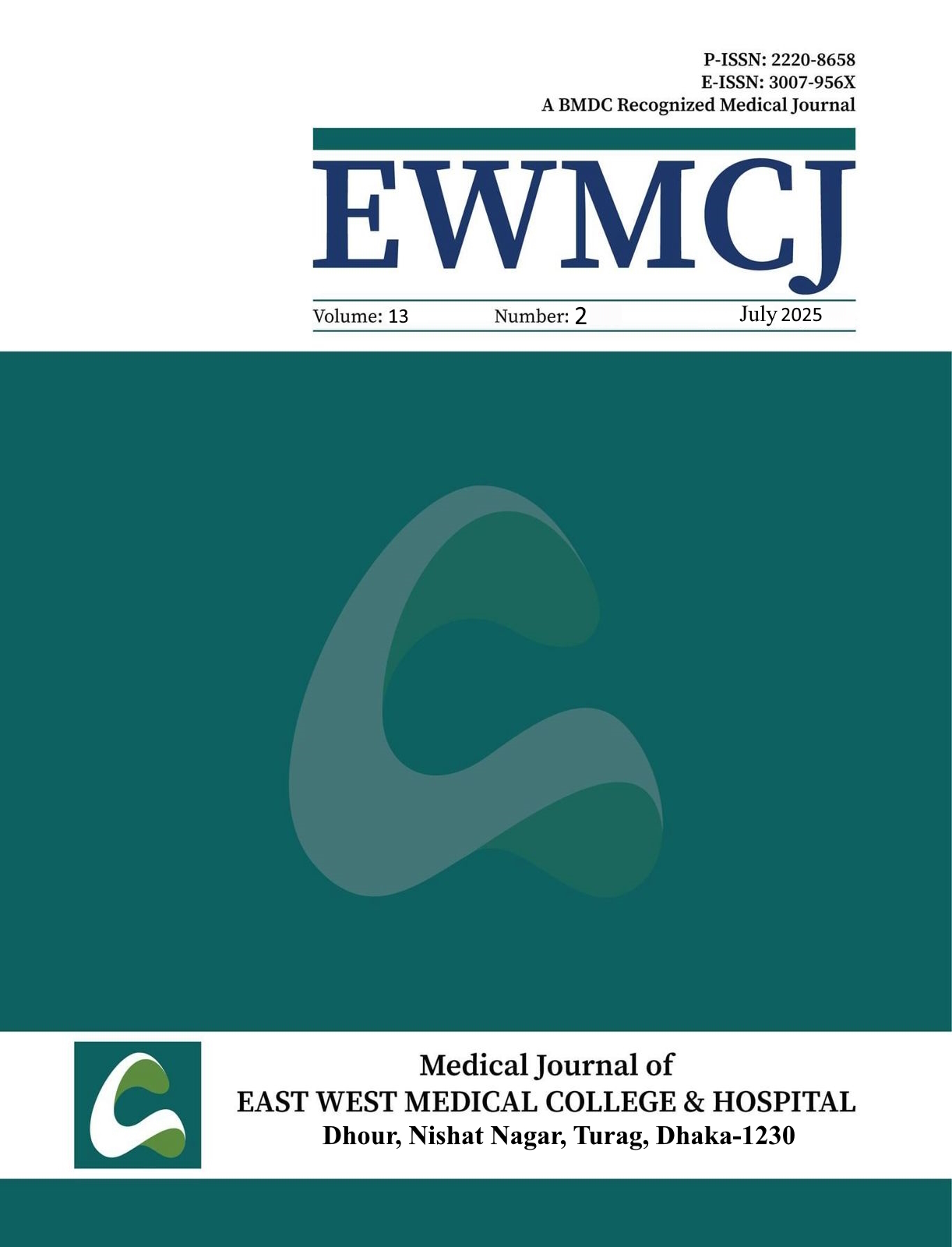Autoimmune Polyendocrine Syndrome Type 3: A Case Report
DOI:
https://doi.org/10.3329/ewmcj.v13i2.79312Keywords:
Auto Immune Poly Endocrine Syndrome, Multiple Autoimmune Syndrome, APS Type 3, MAS Type 3, Idiopathic Thrombocytopenic Purpura, Hashimotos Thyroiditis, Sjogren Syndrome, Autoimmune DiseasesAbstract
Idiopathic thrombocytopenic purpura (ITP) is a condition characterized by a low platelet count, leading to an increased risk of bleeding. Despite having a shared autoimmune aetiology, documented cases of ITP alongside other autoimmune diseases are scarce. Here, we describe the case of a 55-year-old Bangladeshi woman who presented with bleeding symptoms and generalized weakness. On query, she gave a history of dry eye and dry mouth. She was a known case of hypothyroidism and ischaemic heart disease. After comprehensive evaluation, she was diagnosed with Autoimmune Polyendocrine Syndrome (APS)/Multiple Autoimmune Syndrome (MAS) Type 3, which included acute idiopathic thrombocytopenic purpura, Sjogren's syndrome, Hashimoto's thyroiditis, an old antero-septal myocardial infarction, dyslipidemia, and grade I fatty liver disease. Treatment involved a combination of immunosuppressive therapy, thrombopoietin receptor agonists (TPO-RA) - eltrombopag, platelet transfusion, levothyroxine, and supportive measures leading to successful management. This case highlights the challenge of addressing multiple autoimmune conditions concurrently and stresses the importance of comprehensive evaluation and multidisciplinary care to diagnose and manage these complex presentations accurately. Notably, patients with a autoimmune disease may harbour other undiagnosed autoimmune conditions and face an elevated risk of malignancy in the future. Despite this, in Bangladesh, the prevalence of autoimmune diseases, including APS/MAS, remains poorly understood. Further research is crucial to elucidate the epidemiology and clinical characteristics of autoimmune diseases associated with APS/MAS in this population, enhancing our ability to provide effective care and public health interventions.
EWMCJ Vol. 13, No. 2, July 2025: 152-158
179
161
Downloads
Published
How to Cite
Issue
Section
License
Copyright (c) 2025 Fahim Haque, Gourab Dey, Nandita Paul, Akhlak Ahmed

This work is licensed under a Creative Commons Attribution 4.0 International License.




